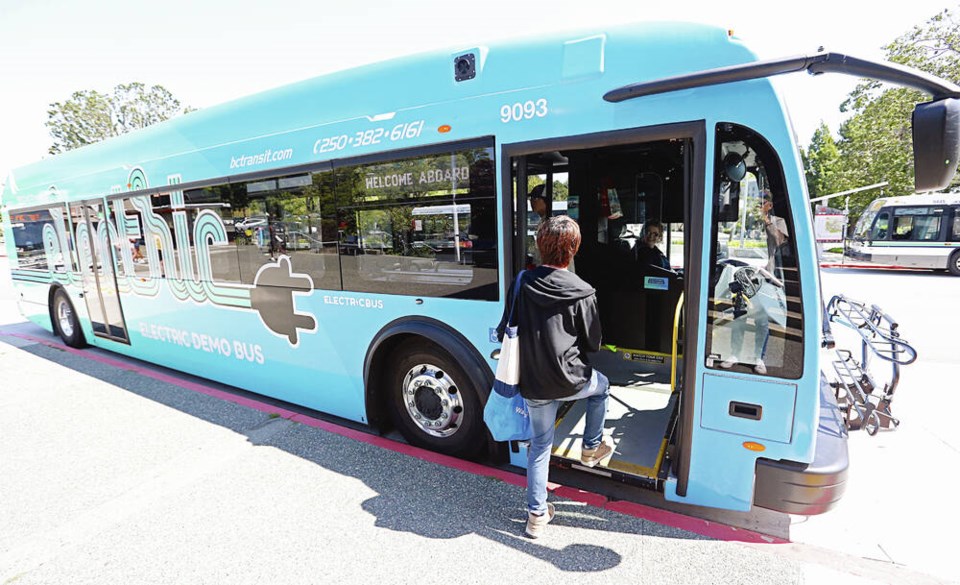B.C. Transit has been forced to look elsewhere for its first fleet of all-electric buses, after the Crown corporation could not come to terms with the new company that has taken over from the bankrupt Proterra.
In a statement Wednesday, B.C. Transit conceded it has no choice but to prequalify new vendors to provide equipment for the first phase of its electrification program.
The program’s goal is to have all of B.C. Transit’s buses fully electric by 2040.
Two years ago, California-based electric bus manufacturer Proterra, which filed for bankruptcy protection last August, won a $20-million contract to supply 10 fully electric buses for Greater Victoria.
Despite the bankruptcy protection, B.C. Transit still had hopes the company would deliver the 10 buses last fall.
That didn’t happen.
Instead Proterra was acquired by North Carolina based Phoenix Motors.
B.C. Transit said it had discussions with Phoenix about the company assuming the contract for the 10 electric buses but a deal could not be made.
Despite having to start over, B.C.Transit said it remains committed to electrification.
“It is important to note that B.C. Transit’s work towards its 2040 electrification goals continues, and the organization has a strategic vision for the future,” the statement said.
“In the meantime, we continue to reduce our greenhouse gas emissions by using renewable fuels. Additionally, the charging equipment constructed at the Victoria Transit Centre is ready to support electric buses from other suppliers.”
Currently, B.C. Transit has one Proterra bus on loan from the company and it is in use in the capital region.
B.C. Transit is not out any money as a result of the bankruptcy proceedings.
The first payment for the buses was not scheduled to happen until the vehicles were released from the factory, with subsequent payments upon delivery and after passing operational milestones.
The $20-million contract was to be cost-shared between the province and the federal government, each paying 40 per cent; the Victoria Regional Transit Commission was to pay the balance.



